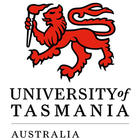Graduate Certificate in Strategic Communication
- Posted by University of Tasmania (UTAS)
- Home
- Courses
- University of Tasmania (UTAS)
- Graduate Certificate in Strategic Communication
Graduate Certificate in Strategic Communication
Study Strategic Communication at the University of Tasmania’s Media School to give you the knowledge and skills required to become an independent and entrepreneurial communicator. Our new course has been developed to meet the complexity and dynamism of an ever increasingly digital and global communication environment. Jobs requiring communication skills…
Categories
COURSE DESCRIPTION
Study Strategic Communication at the University of Tasmania’s Media School to give you the knowledge and skills required to become an independent and entrepreneurial communicator.
Our new course has been developed to meet the complexity and dynamism of an ever increasingly digital and global communication environment. Jobs requiring communication skills are growing fast with employers demanding advanced analytical skills and professional-level communications expertise.
In response, our degrees offer a unique pathway for students coming from undergraduate study or professional roles in the sciences, arts or business to tailor their education.
Designed for those wanting to promote and implement change across a range of social, environment, political and business settings, these courses will help you to develop advanced analytical skills and professional-level communications expertise to applied ‘real-world’ situations.
Take advantage of the Media School’s strong reputation in Media research and unparallel access to industry partners across Tasmania through a choice of three targeted specialisations: Science Communication, Public Relations or Arts and Cultural Events.
Be taught by leading researchers and lecturers, who possess a broad range of industry experience in a state-of-the-art contemporary Media School supported by equipment and technical know-how.
Learning Outcomes
- Critically analyse one or more media texts, practice, industries and audiences from a theoretical perspective, showing awareness of local, global contexts
- Communicate effectively and ethically across one or more media platforms, showing advanced abilities in at least one area of media production and/or the ability to communicate scholarly ideas in a meaningful way
- Design and produce media content with initiative and judgement to an advanced standard and respond to a changing and dynamic media environment
- Evaluate and reflect on one’s professional and research development
REQUIREMENTS
Admission to most postgraduate coursework courses at the University of Tasmania require qualifications equivalent to an Australian bachelor degree.
Course Specific Requirements Entry into the Graduate Certificate degree requires a Bachelor’s degree in any discipline, or work experience of at least three years in journalism, public relations, event management, and/or the related professions.
English Language Requirements are: IELTS 6.5 (no individual band less than 6.0).
EDUCATIONAL INSTITUTION
The University of Tasmania was officially founded on 1st January 1890 and is located at Sandy Bay, Tasmania. In addition to the main campus at Sandy Bay, it also operates out of the Newnham Campus and the Cradle Coast Campus. The most popular courses offered are the environmental studies that include wilderness management, marine sciences and indigenous studies in Tasmanian literature. Other unconventional courses include agriculture development, studies on the community and population and ocean study programs. The university also comprises of a Music Conservatorium, Art school and a School of Clinical studies.
The University of Tasmania was officially founded on 1st January 1890 and is located at Sandy Bay, Tasmania. In addition to the main campus at Sandy Bay, it also operates out of the Newnham Campus and the Cradle Coast Campus. The most popular courses offered are the environmental studies that include wilderness management, marine sciences and indigenous studies in Tasmanian literature. Other unconventional courses include agriculture development, studies on the community and population and ocean study programs. The university also comprises of a Music Conservatorium, Art school and a School of Clinical studies.




